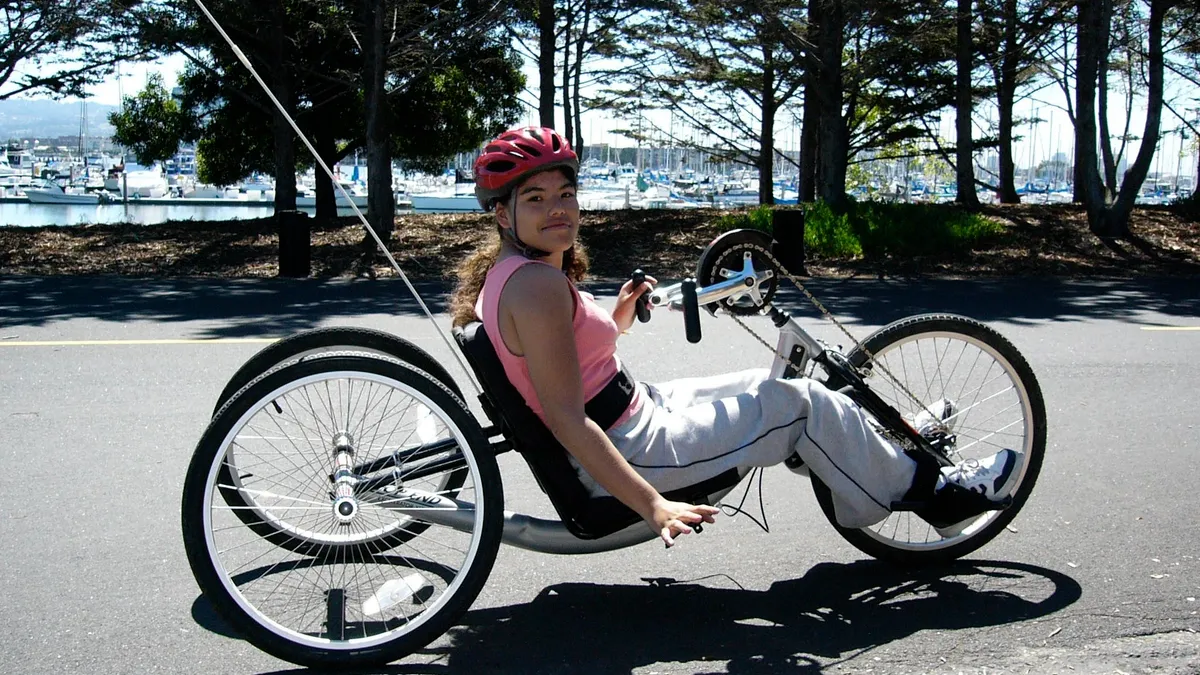Dive Brief:
- Ford GoBike launched an adaptive bike-share program in Oakland, CA catered to users with disabilities. Motivate — owned by Lyft — operates GoBike and collaborated on the adaptive bike-share program with the Bay Area Outreach and Recreation Program (BORP), an organization that offers sports and recreational activities for local citizens with disabilities.
- The 26-week pilot began earlier this month with handcycles, footcycles and a side-by-side tandem bike. BORP staff will help fit new users in the best device for their needs and train them on proper and safe device use.
- "At the conclusion of this program, we will make recommendations for how to turn this pilot into a successful long-term program," Oakland Department of Transportation (OakDOT) director Ryan Russo said in a statement. "OakDOT is committed to making all of our shared mobility programs accessible, regardless of physical ability."
Dive Insight:
GoBike has more than 4,000 bikes and 300 stations in San Francisco, San Jose, Berkeley, Oakland and Emeryville, however Oakland's adaptive bike-share program is the first in the greater Bay Area, and one of only a handful in the U.S. Portland, OR's first adaptive bike-share pilot began in 2017 and it extended the service based on community response and use. Detroit added adaptive bike-share options last year and Chicago is in talks for an adaptive program.
New forms of urban mobility have created quite a buzz in the past few years, but people with different abilities often get left out of the mix, at least initially. For example, shared micromobility — dockless bikes, e-bikes and e-scooters — is hot, but people with certain physical restrictions can't partake in the trend. And ride-hailing services have been around for nearly a decade but only recently began accommodating customers who use wheelchairs.
New mobility modes put a heavy focus on boosting customer convenience such as quickly and easily requesting a pick-up through a ride-hailing app or unlocking dockless devices with an app. But when mobility companies do not offer service accommodations for people with disabilities, that sector of the population misses out on the convenience gains. A Washington, DC-area woman who sued Uber for not serving people with disabilities pointed out that a lack of convenience-centric mobility options forces differently-abled customers to use transit or to plan transportation far in advance, both of which take more time and effort. This removes the ability to live spontaneously and take spur-of-the-moment trips.
Earlier this month, Smart Cities for All released a guidebook cities and their partners can use to ensure innovation prioritizes accessibility for all citizens. Infrastructure is one of the five main areas suggested as focal points. During an interview with Smart Cities Dive last year, James Thurston, vice president for global strategy and development at G3ict, said, "Cities are transforming the way they do services and businesses but they’re not thinking about the accessibility ... These enormous investments in technology that cities are making are actually making the digital divide for people with disabilities bigger, not smaller." His group is working on initiatives to promote greater inclusivity in smart city design and innovation.
GoBike's adaptive bike-share pilot is a step toward greater accessibility, equity and inclusivity. It provides people with disabilities a new option for both necessary transportation and recreation. Collaborating with BORP and offering training for device users also boosts safety, perhaps even giving this program a safety advantage over other bike-share programs.












